Dedicated to Viviana and Vinny:
Somersaulting over translucent horizons
with the levity of the ancestors
& the lightheartedness of our parents
My son Ernesto was nine years old in the summer of 2011. I applied for and received a research grant from the Professional Staff Congress, the union for professors at the largest university system in the country, the City University of New York (CUNY). We traveled to Maui and the Big Island to visit friends and research how the U.S. government and elite agribusiness interests coerced and trafficked Puerto Rican jibaros (peasants) to the Hawaiian islands to toil in sugar cane and pineapple plantations in the early 1900’s. These rich tracts of land were owned exclusively by the oligarchs of the “Big Five,” Castle & Cooke, Alexander & Baldwin, C. Brewer & Co., H. Hackfeld & Co. (later named American Factors) and Theo H. Davies & Co. Our friends in the working-class neighborhoods far away from Honolulu proudly wore t-shirts that read “I am HawaiiaChinaFilaPortRican and proud!” The national slogan spoke to the diverse ancestry of a nation of some 1,000,000 Native Hawaiians who have a mix of “native Hawaiian, Chinese, Filipino, Portuguese and Puerto Rican ancestry.”
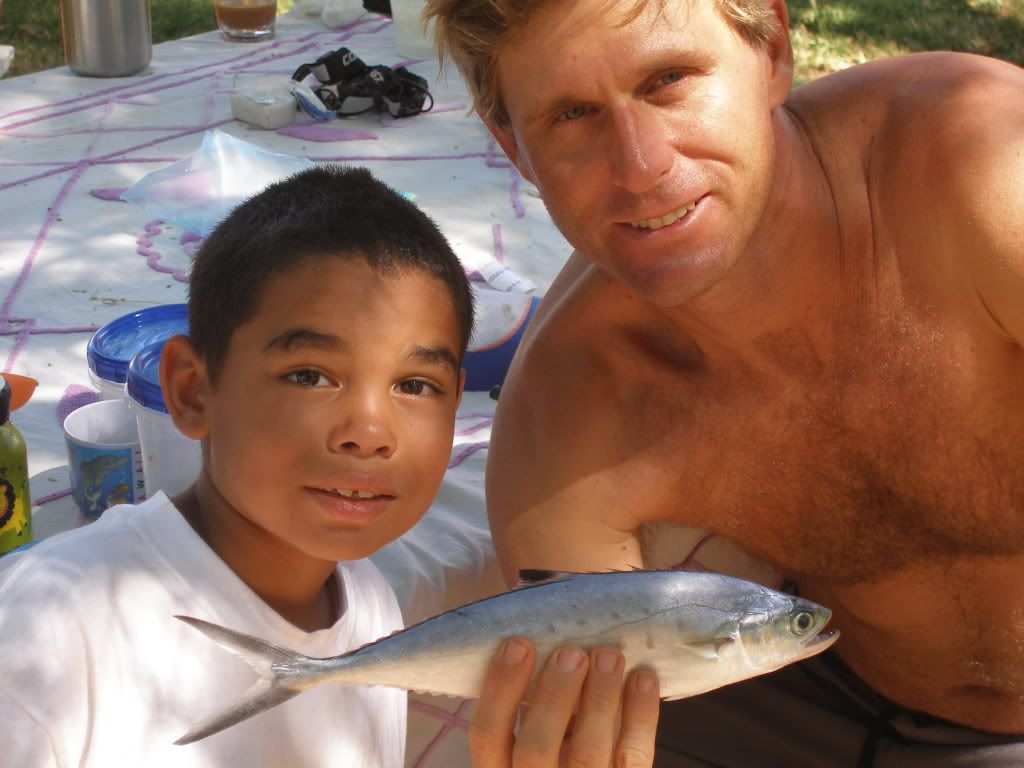
I took Ernesto hiking through the steep rungs of Mauna Loa volcano. He was overwhelmed by the grueling climbs, but he fought through, too proud to complain. In the early evening, I asked him if he wanted to learn how to drive on the top of Mauna Loa. His legs could not reach the break and accelerator. He sat on my lap. I had Biggie Smalls and 112’s 1996 classic “Only You” on repeat as he learned to smooth out the initial herky-jerky movement an untamed car makes. We had fun on our trip. We camped out with native Hawaiian communities who had been pushed out of their family and ancestral lands by one of the highest real estate markets in the country. Our favorite memory was a specific utterance of Hawaiian Creole that the native islanders spoke. One displaced worker, Uncle Keanu, was squatting on the beach playing with his dog and telling us stories of Waianae and Makaha resistance against police evictions. We stayed in his makeshift camp, making friends who I keep in touch with until today. Uncle Keanu’s signature phrase was “Fuck a booby right here!” as he called his dog back to him. He kept his rifle close in case any Hawaii Five-o’s dared to return to evict him and his family.
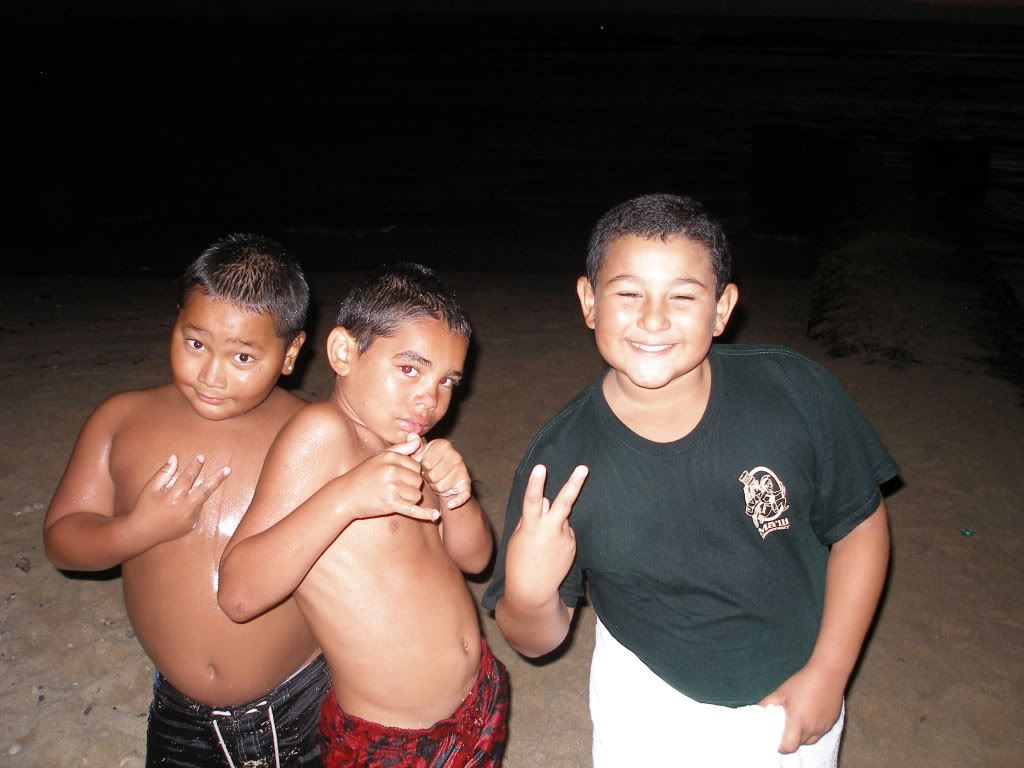
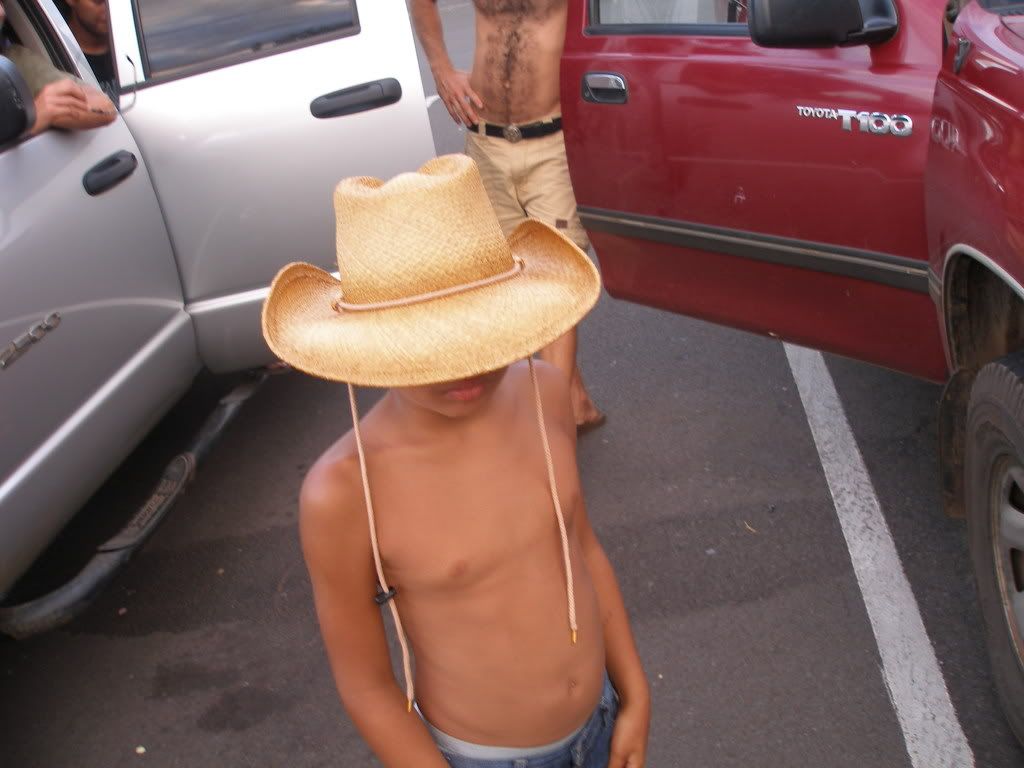
The following summer of 2012, I took my son to hang out and box with the Inmaculada Boxing Club in the 6 counties in the north of Ireland, divorced from the 26-county Republic. It was marching season in Occupied Ireland.

By night, the bonfires roared across West Belfast. Many a colonial Union Jack met its incendiary fate hung above 40 feet of wooden crates alongside other occupying enemy flags. This was Ireland Ireland. Green. Bold. Nationalist. The local Catholic youngsters kept the police entertained and busy all night.
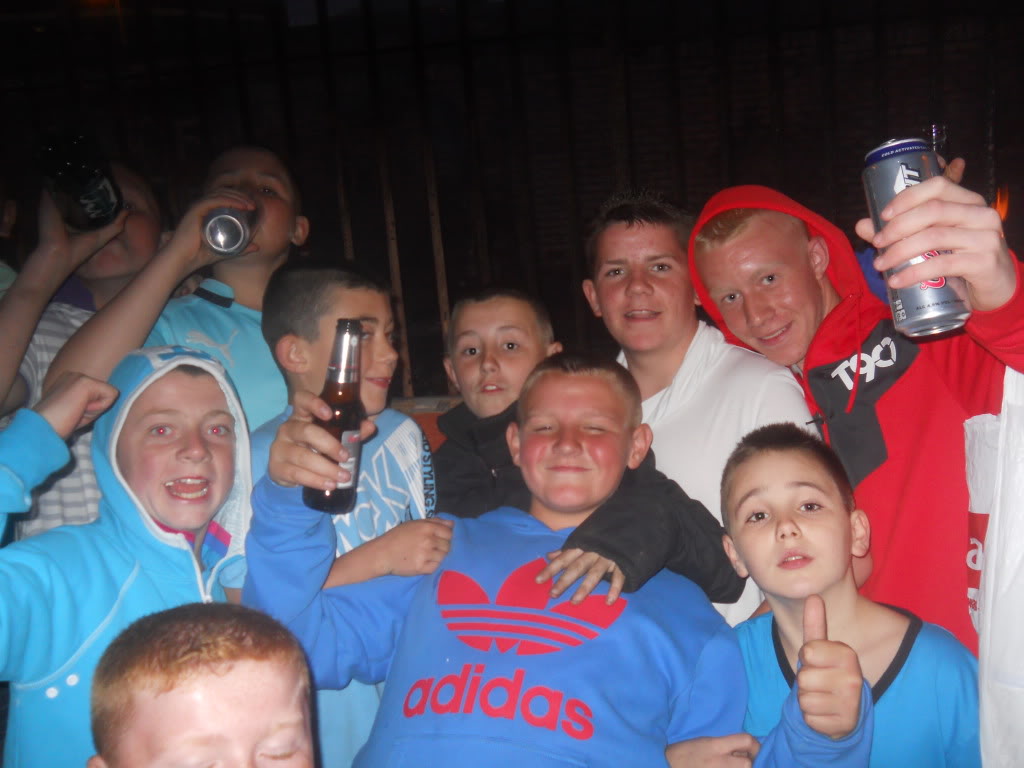
When the paddy wagons stopped at the intersection of West Falls Road, the local ruffian‘s pounded two by fours over the peelers’ (Belfast slang for police or pigs) windshields. The 12-year-old urban guerrillas lobbed bricks, stones and molotov cocktails at the police who didn’t dare get too close. Former IRA commanders dressed as uncles took a swig of Guinness applauding the lads with hands that were not guaranteed to have five fingers. These were anti-colonial snipers and anti-humiliation bombers’ hands.
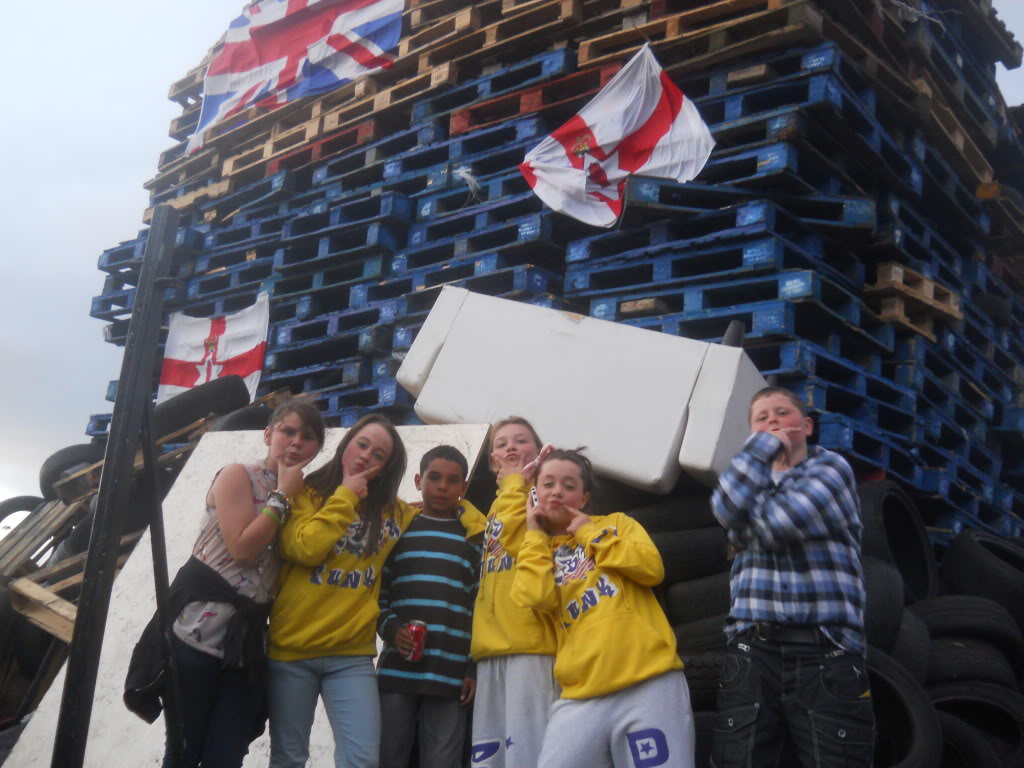
Ernesto was right there with his peers and sprouting comrades. He had turned 10 years old the month before. One social worker masquerading as a reveler whispered to the local gossip girls that the other side of the pond brought “America’s worst dad” back to Ol’ Ireland.
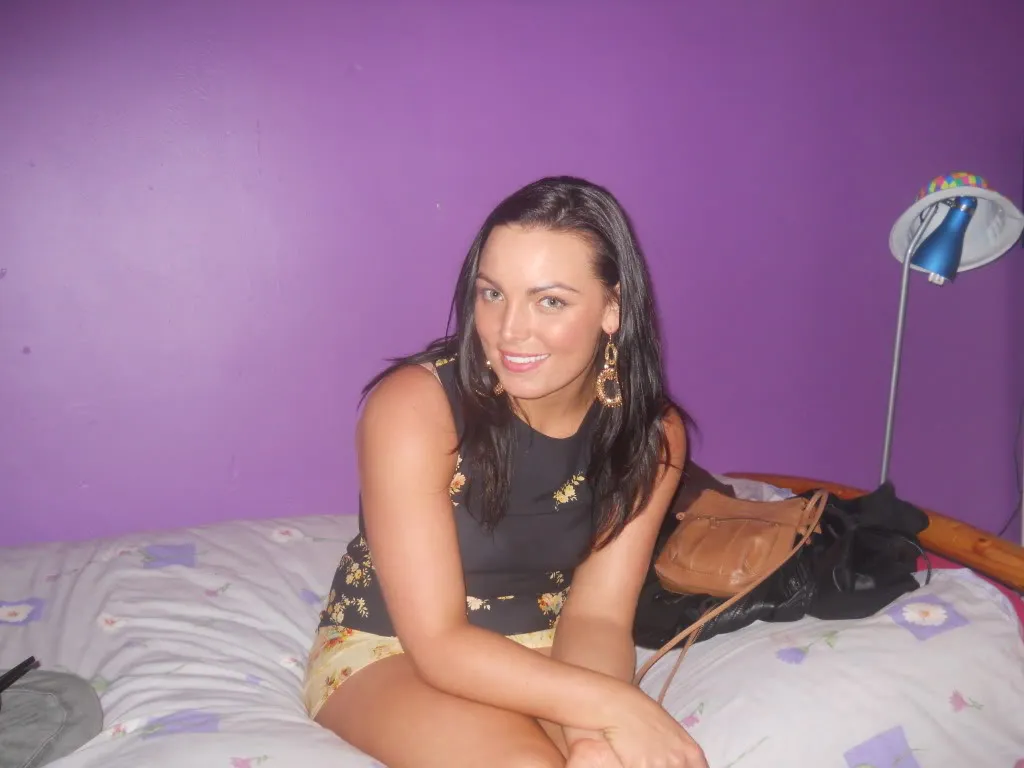
The Hunts Point section of the Bronx has long been known for its infamous alleyways and boulevards with the freshest drugs and baddest prostitutes. Hunts Point always had a reputation that preceded itself. A fatal overdose brought the faithful-to-death forgotten herds scampering for the most sought after of fixes. Boyfriends met their girlfriends and husbands met their wives outside the six train or at the Bx 6 bus stop because it was too dangerous for the women to walk home alone at any time of the day. Addicts screamed at dealers, showing off their punctured and penetrated veins as proof that they were not undercover cops and were worthy of their heroin and fentanyl. I taught my son how to drive in Hunts Point. I made a video for Facebook of “the youngest Dominican taxi driver in the history of the Bronx.” Family members felt I was being reckless with my son, raising their objections under my post and in real life. Someone called Children Protection Services on me. As I told the CPS agents who arrived at my home the next night, “driving is a skill.” By the time Ernesto could reach the steering wheel and brakes, he drove like a man. I have observed his nerves of steel under extreme duress. I have also witnessed him fall 100 times. He has stood right back up every time.
Lenore Skenazy was “America’s worst mom.” In 2008, she granted her nine-year-old son Izzy permission to ride the New York City subway by himself. She dropped him off in one part of Brooklyn, armed him with a map, a paper with their address written (just in case), a $20 dollar bill and quarters in case he needed to make a phone call. He was home within 45 minutes. The story of the atypical mother became big news. First amendment lawyer Greg Lukianoff and New York University social psychologist Jonathan Haidt tell the story of Skenazy in The Coddling of the American Mind, How Good Intentions and Bad Ideas Are Setting Up a Generation for Failure: “two days later [Lenore] was on the Today Show, and then MSNBC, Fox News, and NPR. Message boards were flooded with posts,” as she recounted, “mostly condemning our decision, others applauding it.” Soon Skenazy was decried as “America’s worst mom.”

I lectured my college students today in this my 20th year of teaching as only a 47-year-old grouchy professor could. This was no classroom lecture with a powerpoint. I was lecturing them. I broke everyone of Paulo Freire’s rules from Pedagogy of the Oppressed as I scolded them in a way only their parent’s generation, Generation X, aka Generation Grumpy, could:
“You all are of the fragile generation; the screen generation; the iPhone generation; the terminally-online generation; the depressed generation; the anxious generation; the asocial generation; the fearful, punk generation; the call-out, cancel culture generation; the filtered, plastic-surgery Instagram generation; the paranoid parenting generation; the Culture Wars generation; the doxed generation; the social media generation; the addicted-to-porn and addicted to everything generation; the microaggression generation; the catastrophizing generation; the gender identity generation; the safetyism generation; the trigger-warning generation; and the identity politics generation. But does your generation know inner-peace?”
One intrepid student did not blink: “Professor: do you like anything about us?”
It was an honest question.
I collected my thoughts.
I did not see this type of cowardice growing up, though I was surrounded by no lack of cowardice. I appreciate everything you teach me every day. It is humbling. At times, the spiritual disconnect could not be greater.
As Haidt’s research shows in The Anxious Generation: How the Great Rewiring of Childhood Is Causing an Epidemic of Mental Illness, for the first time in millions of years, there is a generation of mammals who did not grow up playing with one another. Nor do these un-curious mammals have a relationship with nature. This is the first technology-based childhood in the mammal timeline. Our sons and daughters are the guinea pigs of the billionaire CEOs of TikTok, Call of Duty and Pornhub. Haidt and Lukianoff sum up their conclusions:
But efforts to protect kids from risk by preventing them from gaining experience–such as walking to school, climbing a tree, or using scissors–are different. Such protections come with cost, as kids miss out on opportunities to learn skills, independence, and risk assessment. (Keeping them indoors also raises their risk of obesity.) Skenazy puts the case succinctly: ‘the problem with this ‘everything is dangerous’ outlook is that overprotectiveness is a danger in and of itself.’
The establishment’s treatment of my new favorite mom, Lenore Skenazy, is a reminder that we will never be lauded and will always be judged when we teach our children to think independently, because it is only then that they are a threat to the order of things.
In contrast to many of his peers, my son is a chameleon. Drop him off in Beverly Hills. He will make 10 friends. Drop him off in South Central. The result will be the same. “Fear is a thief” so Ernesto Dessalines pickpocketed fear.
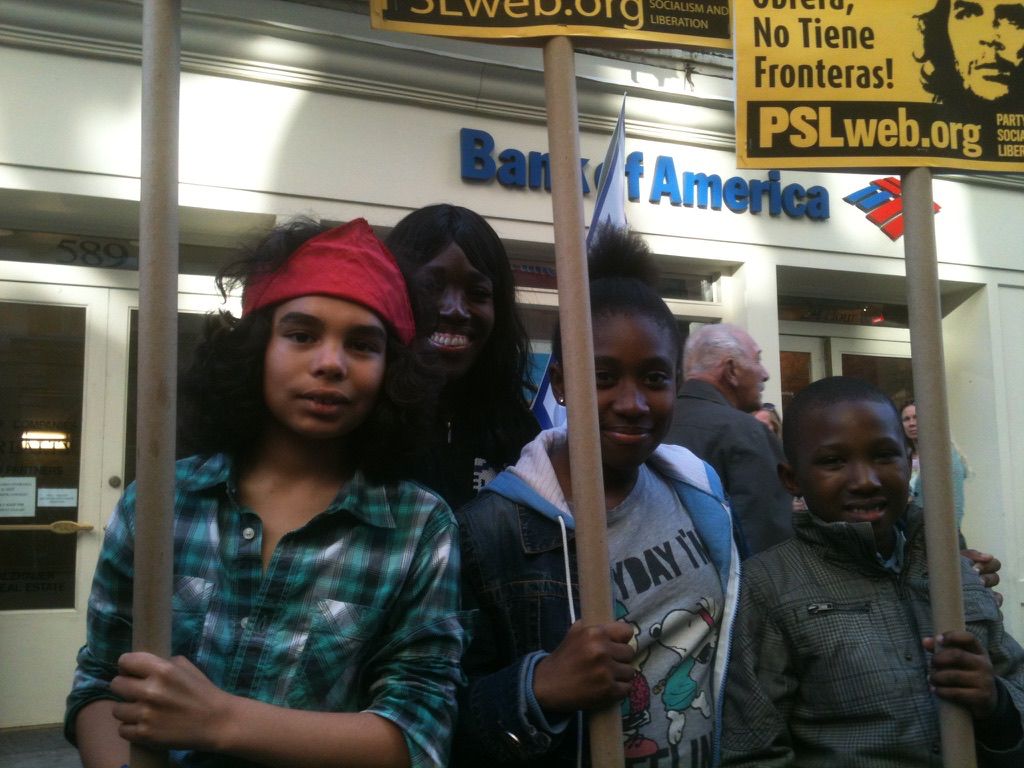
I never read a book on parenting. I never reflected on any of this until I got completely sober. Like no starches and no dating sober. (What percent of America is completely sober?) I made my share of mistakes for which I’ve made amends. I raised my oldest son instinctually the way I lived every day of my life. My class instincts are his. His class reflexes are mine.
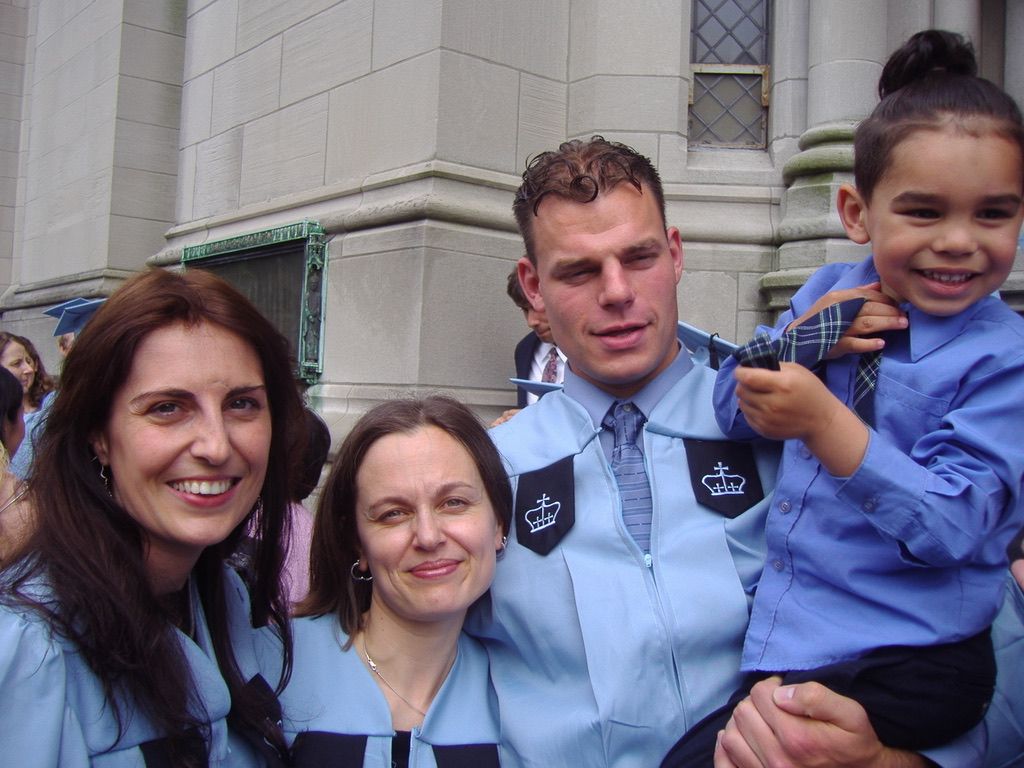
From the streets of Santo Domingo and Brockton to the streets of Paris and Kuala Lumpur, my son taught me how to be a man. In the process, I exposed him to the infinite beauty of this vast, open road we know as life. Bob Marley raised this very question in “Rebel Music 3 o’clock roadblock:” “Why can’t we roam? There’s open country. Oh Why can’t we be what we want to be? We want to be free.” I modeled being a natural-born ethnographer to my son and he revealed this to me in words I’d never heard.

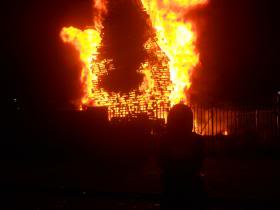



To be a parent is to be a teacher, a leader, a safe haven, an entrance into the world. When I say entrance into the world, I do not mean childbirth. I mean understanding of what is real and true out there, knowledge of the hate and pain it gives, and also knowledge of the history it continuously steals. Common sense tells us that in order to be a bad parent you must neglect and abuse your child. The world shows us that to be a bad parent is to teach your child to step away from the propaganda the media forces in our faces.
“The establishment’s treatment of my new favorite mom, Lenore Skenazy, is a reminder that we will never be lauded and will always be judged when we teach our children to think independently, because it is only then that they are a threat to the order of things” (Shaw, 2025). Professor Danny Shaw taught his son how to drive in the Hunts Point, in the Bronx, and filmed the moment. He was met with judgement and CPS at his door. He took his son to Ireland and let him experience first-hand the resistance the young Catholic boys had towards the police, who treated them like dirt. He was labeled “America’s Worst Dad” by someone in Ireland. Lenore Skenazy took her 9-year-old son on the train and gave him a map, money, and a card with information and his address in case he got lost. Her plan was to let him learn how to find his way home on the train, it only took him 45 minutes to complete his commute. She was met with judgement from the public and media and labeled “America’s Worst Mom”. The only thing they did was try to teach their children a lifelong skill and expose them to the world. If their children were recorded singing the National Anthem they would have been labeled “America’s Best Parents”.
In the eyes of America Professor Danny Shaw, indeed is, America’s Worst Dad. He wants to teach his sons real knowledge about what America keeps from us. He exposes his sons not only to their own culture, but the culture of others that America tries to keep quiet. He makes sure his children can fit in with any crowd no matter their ethnicity. Professor Danny Shaw is a threat to America, but he is an amazing, father and an amazing Professor. He stated “I raised my oldest son instinctually the way I lived every day of my life. My class instincts are his. His class reflexes are mine” (Shaw, 2025). This is exactly how I’m raising my daughter. A 9-year-old Black girl growing up in Harlem. I raise her to learn what she is taught in school but to come home to me so I can give her the true knowledge. We talk about world events on the news and hidden from the news. We talk about the importance that her Black womanhood will one day have in society and how she can change this world. If Professor Danny Shaw is America’s Worst Dad, I’ll gladly be one of America’s worst mothers. If we don’t give our children the knowledge and skills they need to navigate life in this world, no one will.
In Danny Shaw’s “America’s Worst Dad,” one aspect that I agree, especially because I have two kids, one young man he is 23 years old and one girl, she is 9 years old is Shaw’s emphasis on the importance of open communication between parents and their children. As a Spanish mom, fostering a dialogue within the family is crucial, particularly in bridging generational gaps. The ability to openly discuss values, expectations, and cultural nuances can help both children navigate their identities in a multicultural society. This aligns well with traditional Spanish family values that prioritize strong familial bonds and support.
On the other hand, there may be points where I’m disagree with Shaw’s perspective on parenting styles.One of them is, take my kids with me where they may be exposed to danger.I’m not their friend, I’m their mom. From a Spanish cultural standpoint, which often emphasizes respect for authority and structured upbringing, this approach might seem counterproductive. Many Spanish moms like me feels that while nurturing relationships are important, maintaining boundaries and instilling discipline is equally vital for healthy development, especially for an adult son who is transitioning into independence and for a young daughter who needs guidance as she grows.
Finally, I’m also agree with Shaw’s reflections on societal expectations surrounding parenting. His comments about who the digital age consumes the world and also influences children’s education, keeping them more focus in that than in real life interaction or learning. However, it is essential to recognize how cultural backgrounds influence our perspectives on what constitutes effective parenting strategies.
You may help your child build the resilience they need to confront obstacles with confidence by preparing them for new experiences, giving them coping mechanisms, and recognizing their hard work. They will eventually discover that unfamiliar circumstances are chances to develop rather than causes for dread.
A loving parent-child bond that endures into adolescence and beyond should be fostered during all of that. You can’t treat it like studying for a huge test the night before since it takes time to develop a solid bond.
Strong family ties increase a child’s likelihood of flourishing, which includes having a sense of purpose in life, having good relationships with others, accepting themselves, being able to grow personally, and more. So therefore, I do not agree that you are the “Americas worst Dad”
I think the writer of America’s Worst Dad isn’t afraid to call out modern parenting for being too overprotective. He makes the case that kids should have more freedom to take risks and figure things out on their own instead of being constantly shielded by their parents. While some people find his honesty refreshing, others think he comes off as too harsh or dismissive of parents who just want to keep their kids safe.
I can see both sides of the argument about whether he deserves that “worst dad” label. Part of me thinks it’s unfair – he’s just trying to raise independent kids who can handle themselves. Another reason is why people are worried. Times have changed, and there are more dangers out there now than when I was growing up. That’s why some parents feel like they need to be super careful. For me, it comes down to this simple question: do kids learn more from being free to make mistakes, or should parents stick close by to prevent those mistakes from happening in the first place?
Fatherhood is about preparing children to face the world from an early age. I was raised by a single mother and missed the full impact of having a father present. While I’ll forever be grateful for my mother’s strength in raising me and my sister alone, my father’s absence left a lasting mark on my mental health. Most of my friends also grew up without nuclear families, but I noticed a pattern: those with active fathers were more likely to succeed. My own father was a young man seduced by the allure of Washington Heights. As a child, I saw him as the “bad guy” who abandoned us; as an adult, I realized he was a victim of circumstances. My story mirrors Professor Shaw’s “America’s Worst Dad” but in reverse. His essay depicts the kind of father I never had, yet his son Ernesto’s upbringing highlights what I missed.
A father’s influence shapes a child’s core memories and decision-making. After my parents’ chaotic divorce, my mother moved us to the Dominican Republic to finish school in Salcedo. At seven years old, I stood out as one of the few kids without a father. I watched boys mimic their dads’ mannerisms, brag about their work ethics, and beam with pride when saying, “That’s my papá.” Their confidence stung since I had no model to emulate, no blueprint for masculinity. Fathers aren’t just providers, they’re role models who teach children how to navigate society. Ernesto had this advantage. His father didn’t just teach him about the world he showed him, pushing him to hike Mauna Loa’s brutal slopes at a young age. “He was overwhelmed by the grueling climbs, but he fought through, too proud to complain,” Shaw writes. That moment wasn’t just about endurance; it was about the quiet power of a father’s belief. Ernesto learned to face adversity head-on because his dad was there to say, “You can.” I, on the other hand, learned to navigate life by trial and error—a lonelier path.
Parenthood invites scrutiny, and Shaw’s family accused him of recklessness for teaching Ernesto to drive young. *”Family members felt I was being reckless… Someone called Children’s Protection Services,” he admits. But I agree with Shaw: these are the formative experiences boys need. Driving wasn’t just a skill, it was a rite of passage, a memory Ernesto will cherish. The real issue isn’t how fathers parent, it’s that too many are absent altogether. Single-mother households are rising, and fatherlessness creates a ripple effect: boys without guidance make avoidable mistakes, and society pays the price. Worse, the internet has replaced paternal influence. Kids today idolize YouTubers and influencers, strangers who profit from their attention rather than looking up to the men who should be their first heroes. These digital “role models” distort reality, teaching kids to chase clout over character. The solution isn’t nostalgia for 1950s nuclear families. It’s fathers stepping up—whether biological, stepfathers, or mentors—to fill the void. Ernesto’s story proves that even one present dad can change a life. Mine proves what happens when they’re gone.
Some actions we take in life are unpredictable. It would be better to avoid it.I do not agree with carrying an 11-year-old child on you and teaching him to drive even if his feet do not reach the pedal of the car. An accident can happen, and cause something fatal. Wait until the required age to teach him to drive. I think the age of majority is the age when the child has a certain maturity, and responsibility. He knows how to distinguish good from evil. At this age (11 years old) he does not have the sense of danger he is running. It is true that driving is a skill, but not at 11 years old. A conscientious parent can never take the risk of teaching his child this way of driving. It is better to talk with the child early, and as he grows up. He will know how to take responsibility. But him being responsible for taking charge of something as minor is not good.
The case of child whose mother leaves him the responsibility of returning home alone at the age of 9 while crossing the streets of New York alone or take the train, it is really dangerous even if the mother takes all possible precautions to have her child home within 45 minutes after the end of class is not prudent. As a parent, she should organize to pick the child up after Class or look for a day care that will take care of the child until she finishes her work. I do not agree with this practice, when you decide to have children, you have to be consistent.
I completely agree with the way you raised your son. You’ve raised him in a way that helps him face new situations without being scared. The way you handled the driving situation is a great example by letting him learn from someone with experience while also giving him the chance to try it himself, he’s getting a great mix of guidance and hands on experience. This approach builds his confidence and helps him learn important skills in real life situations. I also agree with what you said about this generation being too focused on technology. A lot of parents aren’t sure how to handle their kids so they rather just give them a phone or tablet not realizing it can be detrimental to them in the long run. The hands on parenting style is much better because it teaches kids real life lessons and helps them build important skills instead of spending all their time on a device, they’re learning valuable things that will help them in the future.
I don’t agree to he being called “Americas worst Dad”. I believe he was teaching his son some morals and also made him realized a path of boldness and courage. The perspective of the man if understood was to provide an instinct of positiveness into his son.
Also, his values towards his son were regarded as good.
I don’t agree to he being called “Americas worst Dad”. I believe he was being criticized rather than accepted at that moment.
America’s worst dad is such a powerful title, that says a lot without saying much . In 2011 Danny Shaw got a research grant from CUNY to do research , meaning he got paid to take a vacation to hawaii with his son. Ernesto was given the opportunity to learn how to drive but not realizing he wasn’t big enough yet to get it done . But once I reached the area in Hawaii, I read that the things that happen in the city happen around the world. People have to be displaced from homes due to the wealthy real estate companies buying them out. I loved that keanu stays at the beach with his dog and is armed and ready to protect his land if police try to kick him or his family out.
I Don’t think you’re a bad dad for letting your son drive, I noticed in the video it was in a tunnel , no other car or person was around. I believe that giving people the opportunity to learn new things especially at a young age only improves and increases their hunger for more. I read some of the comments and the one that made me laugh the most is one that said “ have you started him drifting yet “? or something to that accord . That picture of the kids posing with beer and drinking is shocking but goes to show that cultures from around the world are vastly different from one another.
Hunts point is as timeless as ever , a very dangerous neighborhood even today in 2025 with all the gentrifying going on and slowly pushing out the lower class ,it’s still a very violent place. Ernesto, now being old enough to reach the steering wheel and drive better than drivers twice his age shows more about the teacher than the student . Many may disagree with your method but we just don’t get those types of hands-on teaching anymore. Its all on tik tok or youtube. That generation quote towards the end hit me . I am definitely one of the last few generations that had that old school teaching before social media and the internet exploded
The Worst Dad in America is a powerful argument against modern parenting, as it advocates exposing children to real-life hardships. While his actions of exposing his son to disadvantaged communities and war zones are radical to most, I believe they are necessary to foster strength and critical thinking. I disagree with calling the father “The Worst Dad in America,” as his philosophy promotes a balance between protecting children and exposing them to the harsh realities of the world, something I believe is necessary for their maturity. The father’s parenting style contradicts the modern culture of shielding children from difficulties, leaving them unable to cope with life’s complexities. By exposing his son to harsh realities, the father raised him to be critical and understanding of the oppressed. I believe children must be exposed to these realities to grow up strong and aware, traits that are increasingly rare among today’s overprotected children. But Shaw’s approach is sensitive to the boundaries between teaching life lessons and perhaps subjecting a child to emotionally or physically challenging situations. While others might consider his actions to be overstepping the boundaries, I believe his actions were a result of wanting to empower his son to deal with real-life situations. The parents’ commitment to raising a socially conscious, independent-thinking child suggests he is far from “the worst parent in America.”
Shaw’s rasied his son with Freedom. So grow to interact. To be wild, to be kind, to be loving. It was not like the traditional family that he came from, so they mocked him. Called ACS on him, made him feel as if he was less than a father because he chose to raise his son. He was called many things because he decided to live. His life and his child’s life. Without being caged or in a box. I can agree to that for a certain extent. I I’m 35, I was raised with a mother who worked in a hospital. And. She couldn’t always be there. Her caseload was very heavy. This is before she became a successful HR personnel at her Current job. Shaw was reckless, yes, and many things, letting his son drink, letting him drive, letting him live a life though that it only seemed unknown in this society, in other countries. Nothing that he did was wrong. Here I am being raised in Brooklyn with her mother, who was very strict, very militant. We couldn’t do much and that made us very rebellious and wild and wanted to. Do everything that she told us not to do. And we got in a lot of trouble for that. So I don’t believe the way that Shaw has raised his son was a problem at all.
But I was raised in the 90s where you did what you were told. I come from a military family. Uncles, aunts, cousins, everyone was very militant in my family. Yes Sir, No ma’am, please. Thank you. So to see how Shaw raised his son. It’s beautiful, it’s breathtaking. It’s. Not the norm, it’s not what society says with a parent should do. Now his son is well in tune with not just this world and quote America, but with the world in itself being able to travel that young being able to. Intervene and intent and. Enter into different. Atmospheres and hanging with multi people, multi cultured people. It was beautiful. It was. Something that I know that his son cherishes. And I’m kind of. Amazed to see. That he. Was treated in such a way that family and friends wanted to. Praying. Him down because he was living to their norms and even to want to take the child away from him was even worse .hiss son grew to be a great man.